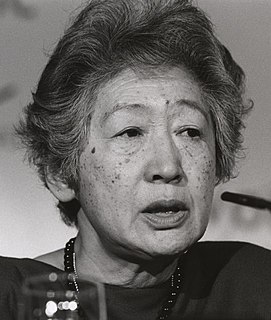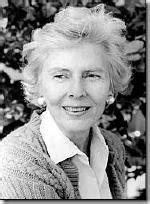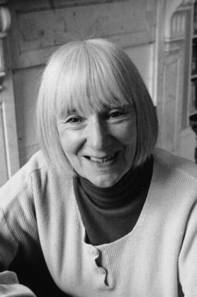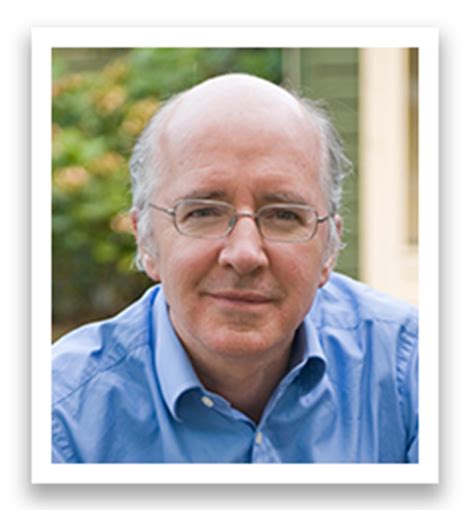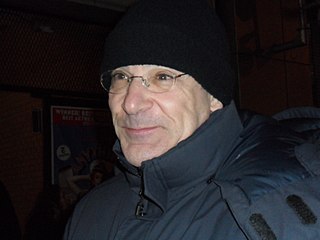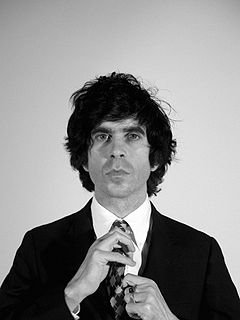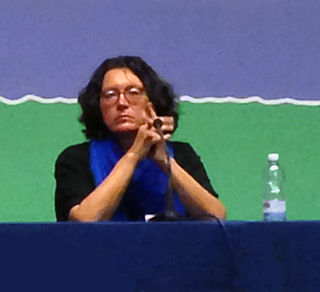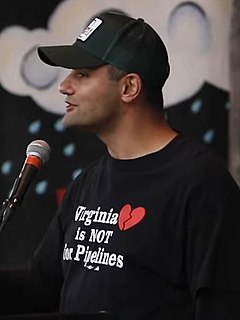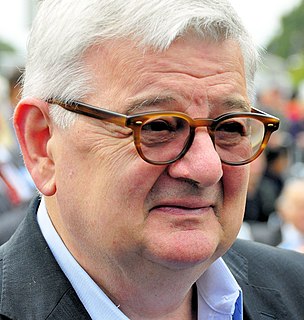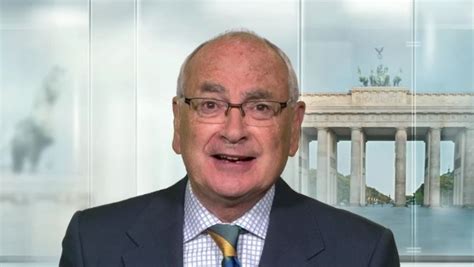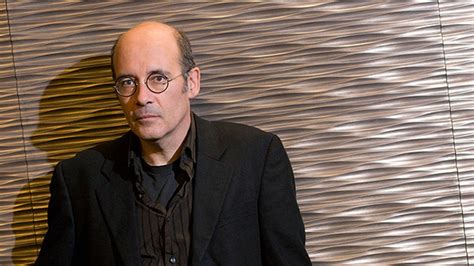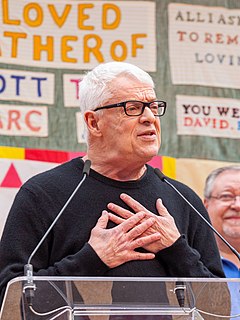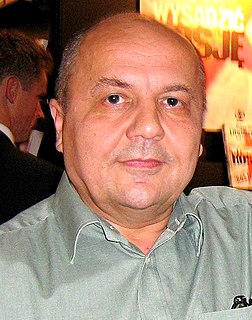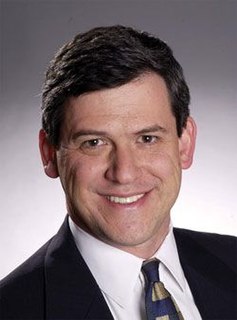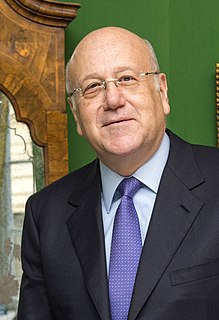Top 651 Vietnamese Refugees Quotes & Sayings - Page 11
Explore popular Vietnamese Refugees quotes.
Last updated on November 19, 2024.
Throughout our history, there has been a long list of those we've been conditioned to hate. The British, French, Spanish, Germans, Japanese, Russians, Communists, Northern Koreans, Vietnamese, Iranians, Taliban, and both northerners and southerners in America are some of the people we've been encouraged at various times to call enemies and to hate. The list is long, and as time passes, those we were assigned to hate we later were told should be removed from our hate list. The enemy is obviously hatred itself. Have empathy for your assigned enemy.
How many migrants, how many immigrants, how many migrants and refugees fleeing war-torn areas in the Middle East are permitted into the Vatican? I'm not kidding. I think I saw a story where they're going to take ... two. It's obviously symbolic. They will take two at the Vatican, thereby setting an example and showing how it's done.
The [Hillary] Clinton campaign posted a pretty clever online quiz that makes a similar point with the Republican presidential field. Who said it? Donald Trump or not Donald Trump? For example, quote, "I mean you can prove you are a Christian. You can`t prove it, then you err on the side of caution." That was not Donald Trump. It was this guy, who strongly denounced Trump`s proposed Muslim ban but supports a religious test for refugees.
Refugee problems may often seem intractable but they are not insoluble. In our experience there are two basic prerequisites for solution: the political will of leaders to tackle the causes and to settle for peace, and international determination to push for peace and then to consolidate it. Consolidating peace means helping societies emerging from war to reintegrate refugees in safety and dignity, to rebuild their institutions - including in the field of justice and human rights - and to resume their economic development.
The United States, which has been called the home of the persecuted and the dispossessed, has been since its founding an asylum for emotional orphans. For over three hundred years, refugees from political oppression, religious persecution, famine, poverty, and a rigid class system which limited educational and economic opportunities have been leaving their native villages and cities and coming to the United States in search of freedom and a better life.
When Europeans arrived on this continent, they blew it with the Native Americans. They plowed over them, taking as much as they could of their land and valuables, and respecting almost nothing about the native cultures. They lost the wisdom of the indigenous peoples-wisdom about the land and connectedness to the great web of life...We have another chance with all these refugees. People come here penniless but not cultureless. They bring us gifts. We can synthesize the best of our traditions with the best of theirs. We can teach and learn from each other to produce a better America.
They wanted to carry her, but she jumped to the stones of the plaza and strode away from the building, toward her ranks, which parted to make way for her. The streets of Pudong were filled with hungry and terrified refugees, and through them, in simple peasant clothes streaked with the blood of herself and of others, broken shackles dangling from her wrists, followed by her generals and ministers, walked the barbarian Princess with her book and her sword.
One of the questions asked in that study was, How many Vietnamese casualties would you estimate that there were during the Vietnam war? The average response on the part of Americans today is about 100,000. The official figure is about two million. The actual figure is probably three to four million. The people who conducted the study raised an appropriate question: What would we think about German political culture if, when you asked people today how many Jews died in the Holocaust, they estimated about 300,000? What would that tell us about German political culture?
Kurdish autonomous region of Iraq is clearly a 'client' state of the West, of Turkey and to some extent, Israel. It is shamelessly capitalist, taking land from its own people, cheating them, just in order to pump and refine huge quantities of oil. It treats Syrian refugees like animals, forcing them to make anti-Assad statements. It is turning ancient Erbil into some bizarre shopping mall with nothing public in sight. Its military top brass is mainly US/UK-trained and indoctrinated. And it provokes Baghdad, day and night.
Where refugees seek deliverance that never comesAnd the heart consumes itself as if it would live,Where children age before their timeAnd life wears down the edges of the mind,Where the old man sits with mind grown cold,While bones and sinew, blood and cell, go slowly down to death,Where fear companions each day's life,And Perfect Love seems long delayed.CHRISTMAS IS WAITING TO BE BORN:In you, in me, in all mankind.
I know that if I feel any deprivation or fear [about money], the solution is to give. The solution is to go find some mothers on the streets of San Raphael and give them tens and twenties and mail off another $50 to Doctors Without Borders to use for the refugees in Kosovo. Because I know that giving is the way we can feel abundant. Giving is the way that we fill ourselves up.... For me the way to fill up is through service and sharing and getting myself to give more than I feel comfortable giving.
I wrestled and played football in high school and in my last year, I started as a wrestler and actually had a fairly good record. But I hated to lose. I always gave it everything I had which, unfortunately, was not as much as I'd hoped for. But keep in mind, I feel like I got the most out of my ability. One moment that was special above all the rest was winning my last bout at the Naval Academy to finish the entire summer undefeated. That was thrilling, but what's more, it helped me in prison because the first time I got knocked around by the Vietnamese, it did not come as a total shock.
Some people think that the Syrian people are from another planet. On the contrary, I think that we all live inside the same boat, on the same planet. And the Syrian war affects everybody now, the whole world. There are Syrian refugees everywhere now. But it looks like nobody cares about civilians in Syria. They are suffering. There are hundreds of victims - innocent women, children, and old men who are hurt or killed every day - and no one cares about them.
Dear friends, let us not forget the flesh of Christ which is in the flesh of refugees: their flesh is the flesh of Christ. It is also your task to direct all the institutions working in the area of forced migration to new forms of co-responsibility. This phenomenon is unfortunately constantly spreading. Hence your task is increasingly demanding in order to promote tangible responses of closeness, journeying with people, taking into account the different local backgrounds.
I have committed myself to joy. I have come to realize that those who make space for joy, those who prefer nothing to joy, those who desire the utter reality, will most assuredly have it. We must not be afraid to announce it to refugees, slum dwellers, saddened prisoners, angry prophets. Now and then we must even announce it to ourselves. In this prison of now, in this cynical and sophisticated age, someone must believe in joy.
It was a heavenly summer, the summer in which France fell and the British Expeditionary Force was evacuated from Dunkirk. Leaves were never such an intense and iridescent green; sunlight glinted on flower-studded meadows as the Germans encircled the Maginot Line and overran not only France but Belgium and Holland. Birdsong filled the air in the lull between bursts of gunfire and accompanied the fleeing refugees who blocked the roads. It was as though the weather was preparing a glorious requiem for the death of Europe.
There had been a free and open election in Haiti in the early 1990s and president Jean-Bertrand Aristide won, a populist priest. A few months later came the expected military coup - a very vicious military junta took over, of which the United States was passively supportive. Not openly, of course, but Haitians started to flee from the terror and were sent back and on towards Guantanamo Bay. Of course, that is against International Law. But the United States pretended that they were "economic refugees."
The United Nations was the thing I wanted to work for. Like the United Nations Commission for Refugees is what I was interested in. And then people said if you do that you'll hit glass ceilings all the time, because you are not Ghanian or Nigerian and that's the way to progress though a multinational organization like that. In any event, they said do five years' legal experience and come back. And after five years I decided to stay where I was. So I am really an accidental lawyer.
I did not feel very patriotic. I did not feel proud of our country, seeing that we were bombing peasant villages, that we were not just hitting military targets, that children were being killed. We were terrorizing the North Vietnamese with our enormous Air Force. They had no Air Force at all. They were a little pitiful country and we were terrorizing them with our bombs. And no, I did not feel proud at all.
The bottom line is that we've become a nation of thieves, a value rejected by our founders. James Madison, the father of our Constitution, was horrified when Congress appropriated $15,000 to help French refugees. He said, 'I cannot undertake to lay my finger on that article of the Constitution which granted a right to Congress of expending, on objects of benevolence, the money of their constituents.' Tragically, today's Americans would run Madison out of town on a rail.
We're no longer young men. We've lost any desire to conquer the world. We are refugees. We are fleeing from ourselves. From our lives. We were eighteen years old, and we had just begun to love the world and to love being in it; but we had to shoot at it. The first shell to land went straight for our hearts. We've been cut off from real action, from getting on, from progress. We don't believe in those things any more; we believe in the war.
There is a beautiful expression in Nicaragua: "struggle is the highest form of song". I love that. We are in the struggle. It's like a river. Once you step into it you become the river. It's not, you go out and click on a couple of charities that you believe in, march in the Women's March, and you're done. Struggle becomes your life, transforming a paradigm that is based on domination into a paradigm of co-operation. Fighting for the liberation of women, of people of color, of indigenous people, of lgbtq communities. Fighting to protect immigrants and assuring the safety of refugees.
Nobody gives way to anybody. Everyone just angles, points, dives directly toward his destination, pretending it is an all-or-nothing gamble. People glare at one another and fight for maneuvering space. All parties are equally determined to get the right-of-way--insist on it. They swerve away at the last possible moment, giving scant inches to spare. The victor goes forwards, no time for a victory grin, already engaging in another contest of will. Saigon traffic is Vietnamese life, a continuous charade of posturing, bluffing, fast moves, tenacity and surrenders.
There two other areas that are personally deeply important to me, that I hope the Homeland show can attend to in some way - one, being the refugee crisis. These are the most vulnerable people among us in the world. There are over 60 million refugees displaced by war, over 21 million that go to a third country. The numbers are climbing, and there are no legal options for these people. These are the victims of the real world's crises that the Homeland world reflects on, and almost takes a Polaroid of these days, versus a fictional tale of it.
Why are all these refugees rushing to the beauty and strength of Europe and to the United States and not rushing to their own capitals or the capitals of the Muslim world? We ought to be pushing back. We ought to be putting people back on these boats and putting them back into the places where they came from and telling these leaders in the Arab world, "You have a responsibility as well."
Everybody has similar values. You travel around the world and everybody is different, but everybody is also the same in those ways. There's so much difference but there's so much similarity. Nobody wants to be harmed, or have their children, or their mates, or their relatives, or their families harmed, exploited, bombed, starved, dislocated, or become homeless refugees. So we're all similar in that way and spiritual life and religion is supposed to be part of the solution not part of the problem.
As a child, I remember asking my parents when I was five years old, "How come if you are not Zionists, you came to the country?" I was surprised at myself that I asked this question. It means that it was always in the air. Then years later I understood it was because of the Holocaust, because they were refugees. They did not come as immigrants and, because of the illusions of the '50s and the late '40s, my mother said, "The world must be better." She could not imagine that it wouldn't be different.
Donald Trump needs to stay focused and remember the promises to you, the American people. You know the promises, repeal and replace Obamacare, identify radical Islam, lower taxes, repatriate corporate profits, build the border wall, appoint originalists to the Supreme Court, fix inner cities, energy independence, drain the swamp, send education back to the states, you know, say radical Islam, vet refugees, all of these important issues, free trade.
You bring up identity politics and I think that this is really causing a divide in the American left where we're rallying too much around identities. We should celebrate our heritage, we should organize by identity, but we shouldn't advocate and push for certain identities. We shouldn't talk about women suffrage, or plight of Muslims, or refugees; we should talk about our common American values.
With the arrival of the refugees in 2015, it became impossible to ignore that the period of uninterrupted sunshine that Germany had enjoyed had come to an end. The vast problems of the 21st century are knocking on our door. That is also true of the dramatic changes that we can see globally, for example with Brexit and the election of Donald Trump. You can't win people over by saying nothing and biding your time, as Angela Merkel has tried to do. People want leadership - in the best sense of the term.
I would like to ask you all to see a ray of hope as well in the eyes and hearts of refugees and of those who have been forcibly displaced. A hope that is expressed in expectations for the future, in the desire for friendship, in the wish to participate in the host society also through learning the language, access to employment and the education of children. I admire the courage of those who hope to be able gradually to resume a normal life, waiting for joy and love to return to brighten their existence. We can and must all nourish this hope!
Angela Merkel embodies Germany's 20th century fate. It is not up to me to pass judgment on her place in history, but I believe that she is the chancellor of Germany's reconciliation with Europe. She stands for a Germany for whom globalization has been a success and which accepts its role in foreign and defense policy. I thought the way she dealt with the refugees was courageous. I think she is the chancellor of reconciliation.
What has happened in the last generation is that Tijuana has become a new Third World capital - much to the chagrin of Mexico City, which is more and more aware of how little it controls Tijuana politically and culturally. In addition to whorehouses and discos, Tijuana now has Korean factories and Japanese industrialists and Central American refugees, and a new Mexican bourgeoisie that takes its lessons from cable television.
The largest weight is now on Germany's shoulders. Chancellor Merkel must continue to convince people of the EU's importance; she must spearhead the effort to redefine the EU. In order to do this, Germany must become a muscular democracy. It needs to shoulder far more responsibility for the physical security of Europe, especially Eastern Europe and the Mediterranean. So far, unfortunately, Germany has taken the lead in disrespecting Europe's borders by opening its doors to more than a million refugees and migrants.
For me, respect is an extremely important political term. Since I began campaigning, it has been at the heart of each of my speeches. Many people have the feeling that politicians aren't paying a sufficient amount of attention to them. And then, when the refugees arrived on top of all problems, there was a feeling: You do everything for them, but nothing for us. This mixture of frustration and fear has led to this reaction. That is why it is so important to show these people: We respect you.
I thought of New York as a free city, like one of those prewar nests of intrigue and licentiousness where exiles and lamsters and refugees found shelter in a tangle of improbable juxtapositions. I had never gotten around to changing my nationality from the one assigned me at birth, but I would have declared myself a citizen of New York City had such a stateless state existed, its flag a solid black.
I met with many of - a number of [Syrian] refugees in Berlin the other day, and I was struck by how educated, intelligent, and patriotic they are. They want to go back. They love their country. And there are so many of them still in Jordan and in refugee camps in Lebanon and in Turkey, that if you could create the climate within which they could begin to come back, I believe there is such a history of secularism within Syria, even tolerance within Syria, that if we can deal with ISIL, yes. That's the key. And with ISIL there, not a chance.
Since the industrial revolution, cities, and especially the inner cities, were the places for the newly arrived. Voluntary immigrants seeking economic betterment, refugees, the bohemians, the artists - all of those people were crammed into densely populated neighborhoods and tenements. And as people climbed up the economic ladder they moved out, which really accelerated with the "white flight" phenomenon in the '60s and '70s.
I believe the number is 70% of the world's refugees since World War II have been taken in by the United States. Every year, year in, year out, the United States admits more legal immigrants than the rest of the world combined. The United States has granted amnesty before to three million illegals and appears prepared to do it again.
True Socialism, in which everyone is truly equal, does not just resemble a prison - it is a prison. It can not exist unless it is surrounded by high walls, by watchtowers and by guard-dogs, for people always want to escape from any socialist regime, just as they do from a prison. If you continue your attempts to establish a model society you will need to build walls around it. You will be forced to do so sooner or later by the flood of refugees.
What's going on in Syria is the worst humanitarian crisis since World War II. And we are punishing those who are suffering most in this circumstance, in this condition. We vet refugees from Syria for a period of 18 to 24 months before they're allowed to come to the United States. And, you know, if you will permit me, I think we know more about them by the time they get here than we know about the president's finances.
It's very important that people understand that for refugees to come into the USA is very difficult. What upsets me about the whole situation is that people don't know the difference between a migrant and a refugee; they don't have respect for what people are coming from - the people who against it - and they have completely forgotten this is what built our country, the diversity. When it is put forward that masses of people are dangerous, and the actual numbers and the situation are proven to be completely the opposite of the way they're presented publicly, it's horrible.
From wherever the emissions come, they have the same effect: They trap much more heat from the sun, melt the ice, raise the sea level, cause stronger storms, floods, drought, bigger fires, generate millions of climate refugees, destabilize political systems, threaten the growing of food crops and cause a number of other catastrophic consequences which, taken together, threaten the basis for the future of human civilization on the Earth.
I did a lot of reading of first person accounts from Koreans and combatants and aid workers. And I spoke to relatives. A lot of wonderful photographs were made available to me from that period - 1950-1956 - and those were given to me by a Korean newspaper in Seoul. Ruined villages, refugees streaming through a river valley, GI's and orphans and orphanages, those tiny details that you can only see in a picture.
The Islamic State does not want us to open our doors to their refugees. It wants them to be hopeless and desperate. It does not want us to enjoy ourselves with our families and friends in bars and concert halls, stadiums and restaurants. It wants us to huddle in our houses, within our own social groups, and close our doors in fear.
UN peacekeeping operations are now increasingly complex and multi-dimensional, going beyond monitoring a ceasefire to actually bringing failed States back to life, often after decades of conflict. The blue helmets and their civilian colleagues work together to organize elections, enact police and judicial reform, promote and protect human rights, conduct mine-clearance, advance gender equality, achieve the voluntary disarmament of former combatants, and support the return of refugees and displaced people to their homes.
Every time we walk along a beach some ancient urge disturbs us so that we find ourselves shedding shoes and garments or scavenging among seaweed and whitened timbers like the homesick refugees of a long war... Mostly the animals understand their roles, but man, by comparison, seems troubled by a message that, it is often said, he cannot quite remember or has gotten wrong... Bereft of instinct, he must search continually for meanings... Man was a reader before he became a writer, a reader of what Coleridge once called the mighty alphabet of the universe.
[The Dutch] people want [refugees to be safe] but don't come here. And don't forget, people are very angry about that, that most of the people who came to Holland were younger people, often young men who crossed before coming to Holland six of seven safe countries in order to be in Holland. If they just wanted to be safe, they would have stopped at Turkey or maybe if you find Turkey unsafe, in Greece.



